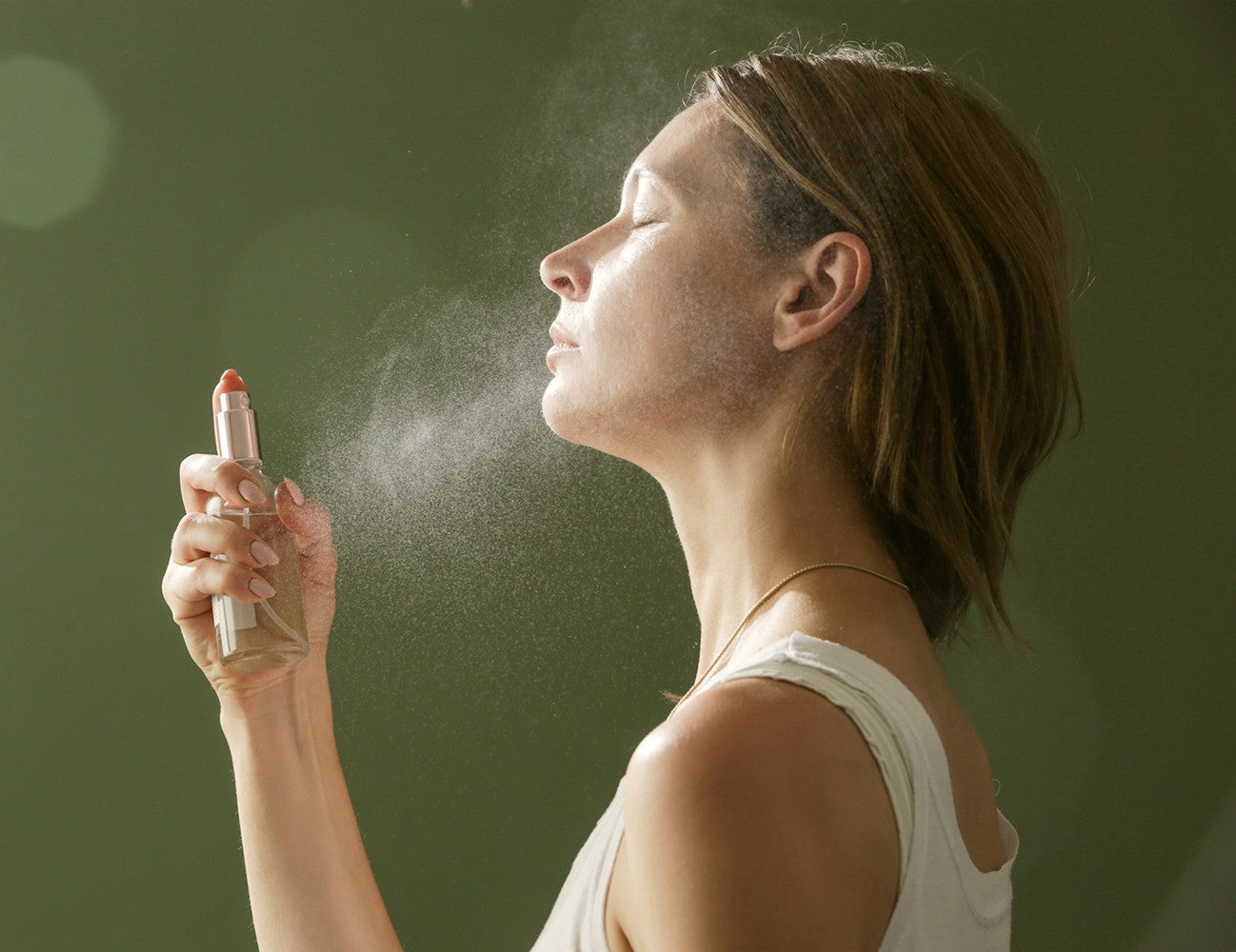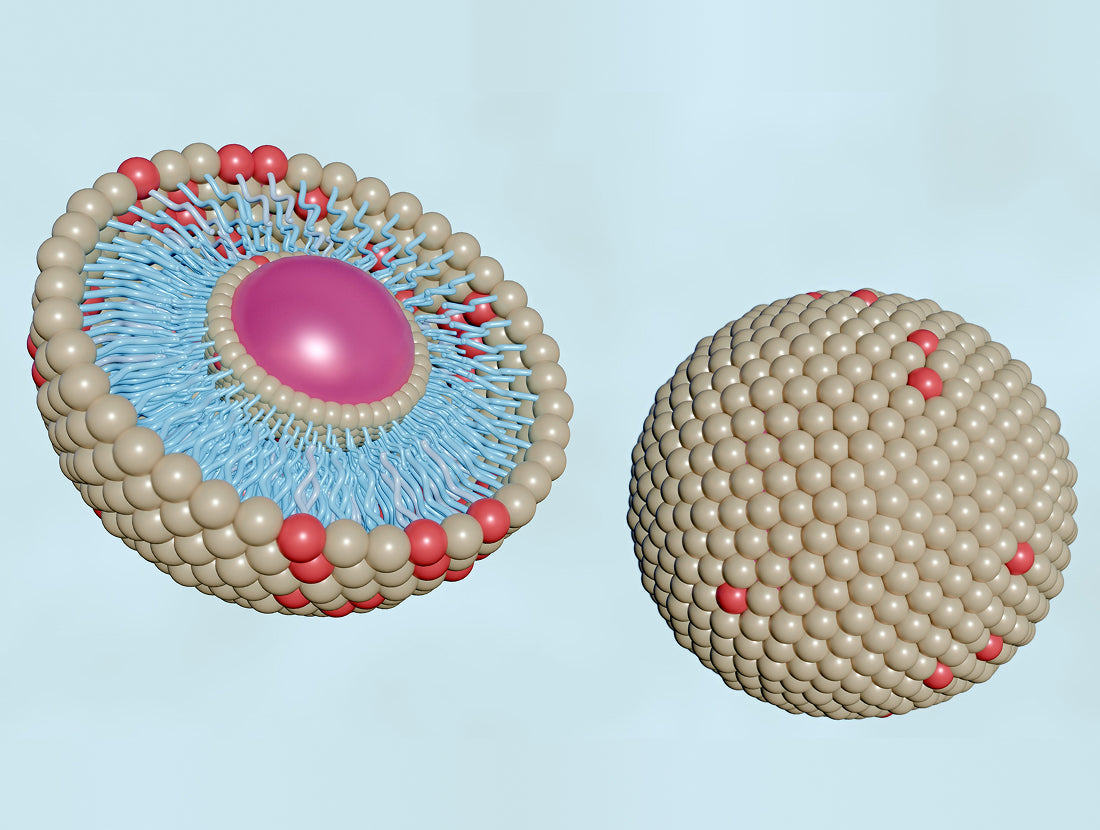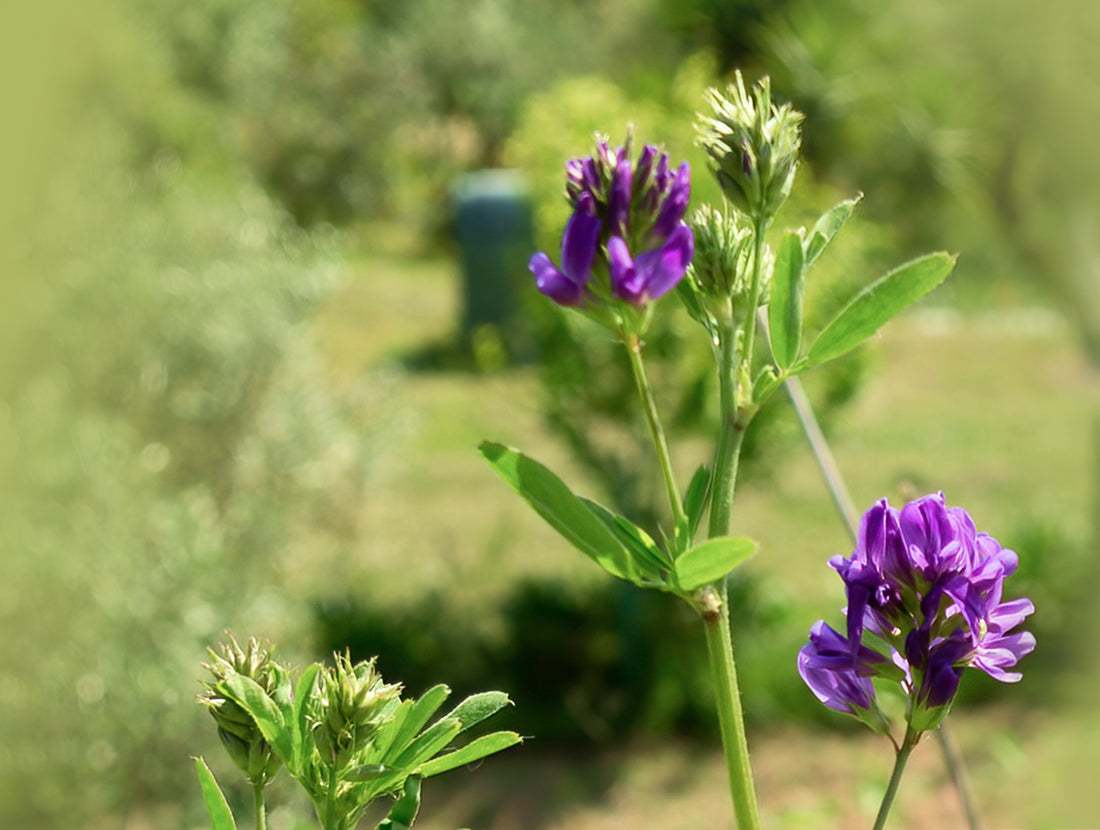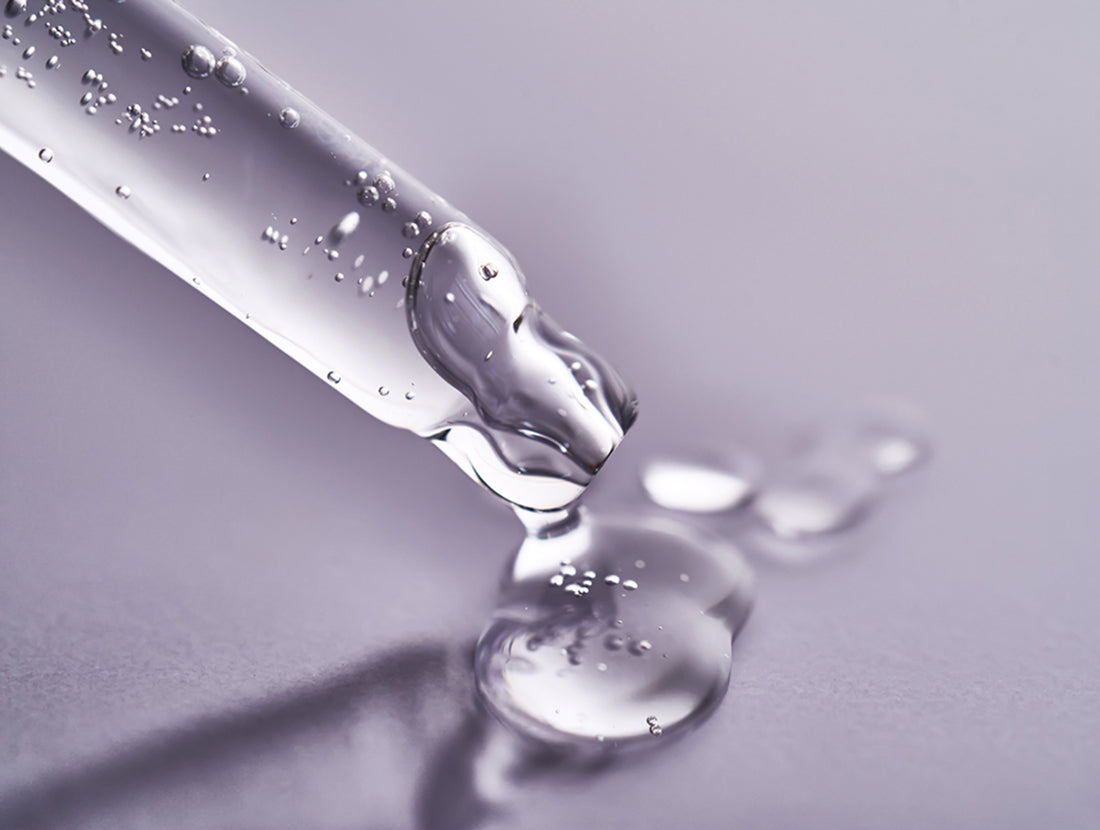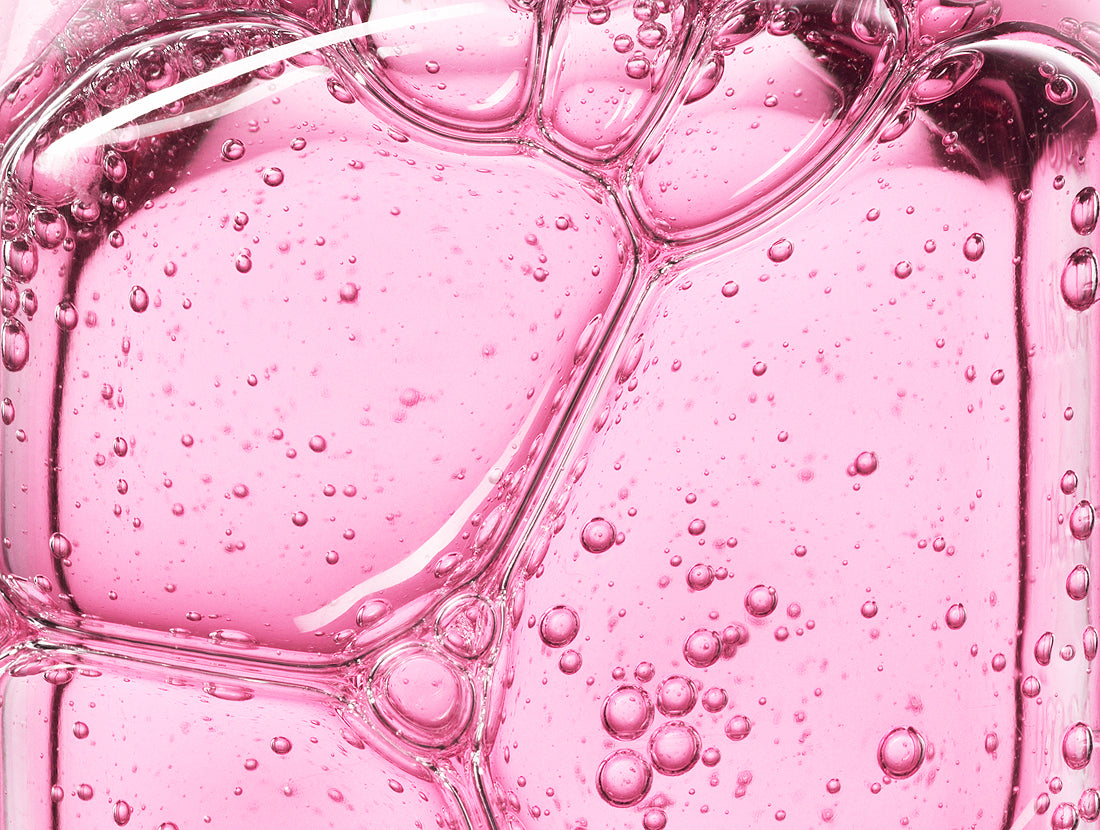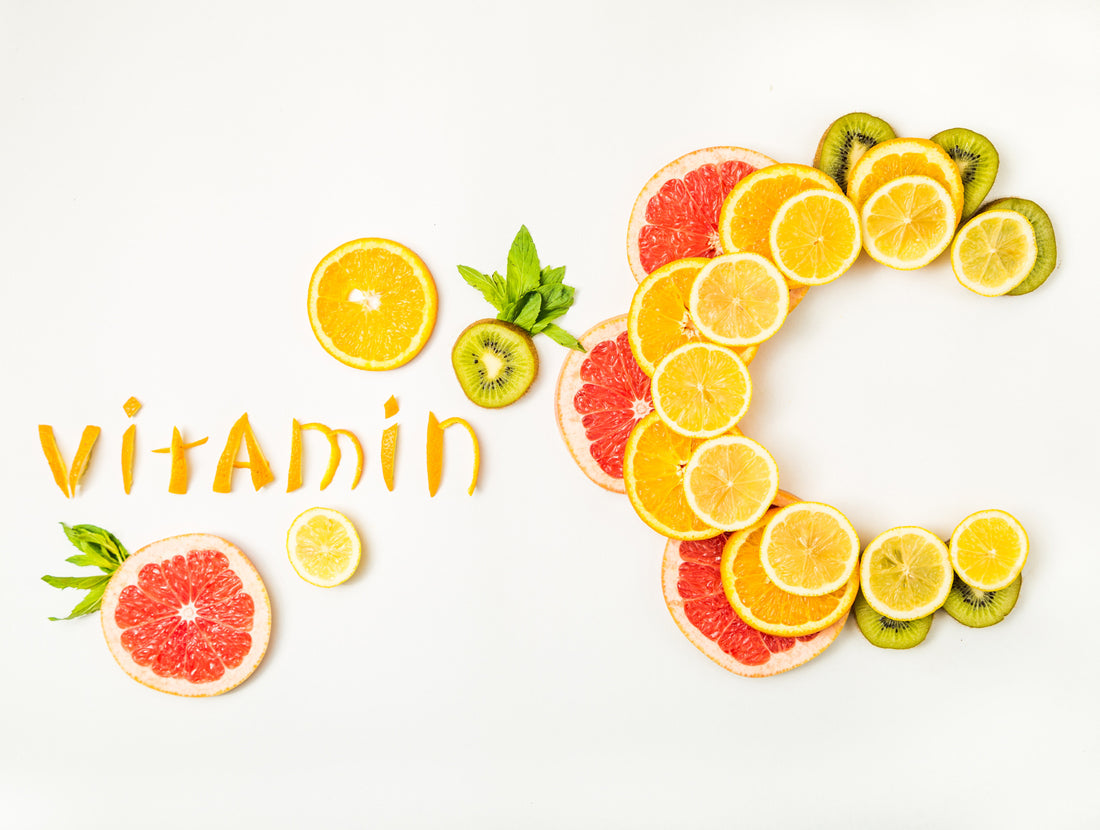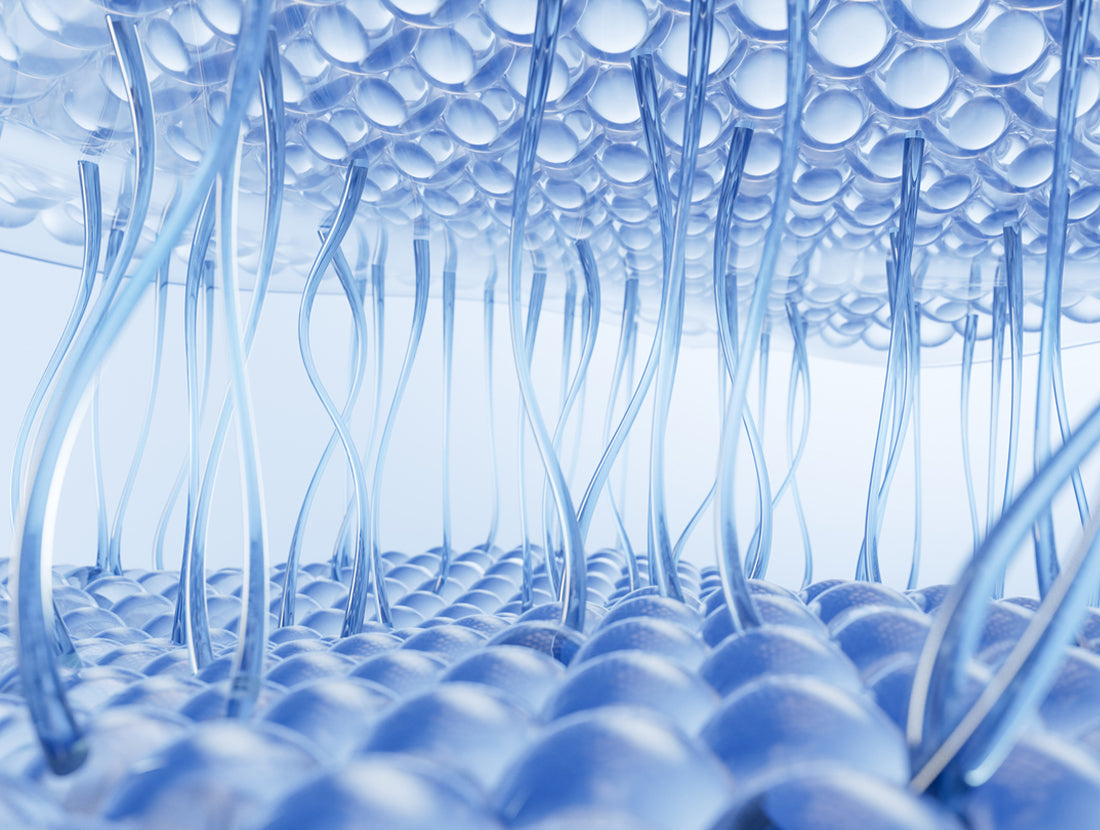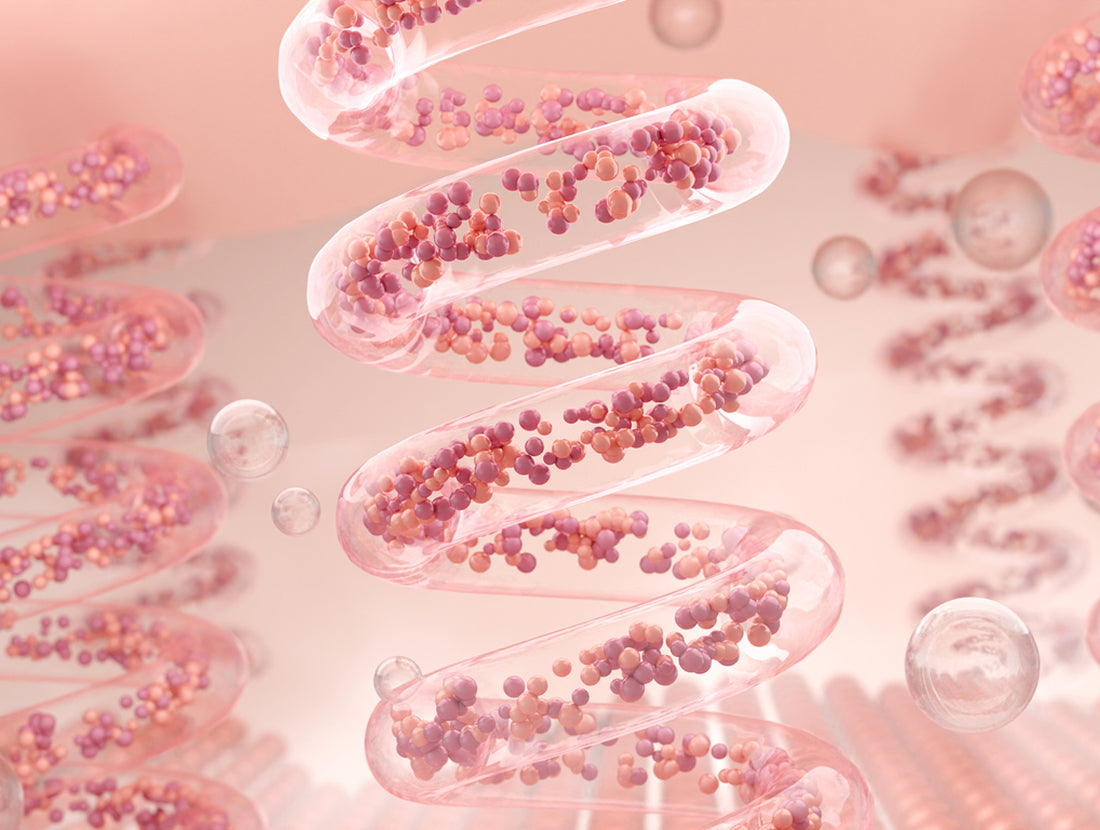Skin Care Tips
Microencapsulation: A Skincare Revolution with Ourself Skincare
The biggest obstacle in getting your skincare ingredients where they need to be is a literal barrier: your skin's outer layer, aka the skin barrier. The skin barrier has an important job; keeping moisture in and pollutants out, which helps keep your entire body, not just deeper layers of the skin safe. It's great at this job, which is good news for your health, but that becomes a double edged sword with age as it blocks easy replenishment of compounds like collagen and elastin that keep skin healthy and youthful. So how can you actually get your anti-aging skincare ingredients to penetrate your skin? Microencapsulation Encapsulation has been around since the 1930s, where it was originally developed as a potential alternative for carbon copy paper, where tiny amounts of dye were wrapped in a fragile protective layer to allow targeted application. It quickly evolved to be useful in other arenas like with vitamins and other ingredients that need to be protected from oxidation or similarly degradative processes. You can learn more about the history of microencapsulation here. In the 1980s, there was a breakthrough in the cosmetic industry, with the introduction of liposomal encapsulation to help absorption of skincare products. Before, the majority of active ingredients failed to penetrate the outer layer of the skin and would simply sit on top of it. Now, by encasing active ingredients in a layer of lipids, ingredients were better able to slip through the lipid membranes in the outermost layer of skin. Then, the outer layer is shed, allowing the active ingredients to be delivered a bit deeper into the epidermis, and produce greater benefits. This also adds protection to more reactive ingredients like vitamin C and retinol, which can oxidize quickly, contributing to greater potency and longer shelf life. Odds are you already use at least one or two products that have encapsulation to thank for their results and shelf stability. To read more about liposomal encapsulation in beauty, click here. Ourself: The Next Generation of Encapsulation A new arrival in the skincare market, created by seasoned pros from brands like SkinMedica and Alastin, has pioneered a new development in microencapsulation, allowing for the first subtopical delivery system. Ourself products use a patented multi-tiered vescicle system that allows encapsulation of multiple active ingredients within 18 or more layers of phospholipids. This evolution of traditional liposomal encapsulation is a huge step forward, allowing tiered-release of active ingredients, which gets them to deeper layers of the skin. That means, that for the first time, ingredients like peptides and hyaluronic acid can actually be delivered to the dermis, leading to an increase in collagen fibers, skin hydration, and skin firmness. The results from their clinical trials are incredible, showing ingredients penetrating deep into the dermis and stimulating collagen production as quickly as within 24 hours. Read Ourself's clinical findings as published in the Dermatologic Surgery Journal. To read more about Ourself's clinically tested technology, click here. Ourself Results I have been using Ourself's marquee skincare product, HA+ Replenishing Serum for about a month and a half now, and am ready to report on my results. First, I love how easy it is to apply compared to other HA serums. It's a smooth formula that glides on easily, absorbs well, and doesn't pill like other HA serums can. Because it feels a little thinner than your typical HA serum, it feels like a little goes a long way, and it's easy to spread out across my whole face and neck with just 1-2 pumps. Plus, with Niacinamide, Vitamin C, and peptides, it's an all-in-one serum that promises to do much more than your standard hydrating serum. My skin tends to be very sensitive and doesn't always tolerate Vitamin C well, so I was curious to see if the multi-level encapsulation would help with that. Since I've been using Ourself HA+ Replenishing Serum, I haven't had any increase in sensitivity, so it seems the vitamin C encapsulation has been working for my skin. It hasn't been a big change, but I do think my overall complexion looks a bit brighter too. The biggest change I've observed in my skin is that it definitely feels firmer since I started using Ourself. I'm 40 and have been using scientifically backed skincare for about 10 years. I haven't experienced any sagging yet, and my fine lines and wrinkles aren't too noticeable yet, so I can't speak to results with those concerns. But, I definitely have noticed in the past few years that my skin feels softer and less elastic than it used to. Since using Ourself, there is a noticeable improvement in how firm and resilient my skin feels, so I plan to keep using this serum to keep it that way. Summary Microencapsulation was a huge step forward in the skincare industry, allowing for greater stability and absorption of active ingredients past the skin barrier. Ourself's patented multi-layer encapsulation technology is the next generation of encapsulation, allowing active ingredients to penetrate all the way to the dermis, deeper than they've ever gone before. If you've tried Ourself and love it like I do, tell me about it in the comments!
Learn moreWhat is Bakuchiol? The Skincare Ingredient Everyone's Talking About
Bakuchiol has been an ingredient used in skincare for a while now, but recently it's been more talked about as an important one. Some people even call it a gentler retinol alternative. But what is bakuchiol, and is it really accurate to call it a retinol alternative? Read on to learn more.. What is Bakuchiol? Bakuchiol is a natural compound extracted from the seeds of the Psoralea Corylifolia plant, which produces the beautiful purple flower pictured below. The plant is native to Asia and has been used for centuries in Chinese and Indian medicine traditions. The Sanskrit name for the plant is "Bakuchi," and that's where bakuchiol gets its name. You can read more about bakuchiol and its historical usage here. What does Bakuchiol do for your skin? Bakuchiol has been isolated and researched for its potential medicinal properties since the 1970s, but has only made it's way into skincare within the last 20 years. Clinical studies have shown bakuchiol to have antioxidant and anti-inflammatory properties, as well as an ability to minimize the appearance of signs of aging like hyperpigmentation and wrinkles. It can also help prevent pores clogging to prevent blemishes, and help restore a glowing, youthful appearance. If those benefits sound familiar, you may be starting to see why people are referring to it as a retinol alternative. Read more about how bakuchiol works and how it compares to retinol at the Cleveland Clinic Is Bakuchiol really a retinol alternative? Retinol, or Vitamin A, has a completely different chemical structure than bakuchiol, so you may initially think they'd have totally different benefits, but that isn't the case. While bakuchiol may not give you all of retinol's benefits and might not be as potent, it does produce many similar effects without the drawbacks of retinol, which can be too harsh for those with sensitive skin. For example, bakuchiol provides results with far less irritation than retinol. And, it does not make your skin more susceptible to sun damage the way retinol does (but that's not an excuse to skip the sunscreen, okay?) Some people are hesitant to call bakuchiol a retinol alternative because it isn't an exact 1:1 replacement, and that's true. However, the benefits are similar enough to make it a valid analogue for people with sensitive skin to try using instead. It also appears in some retinol products as an added anti-aging boost, so you don't have to see it as one or the other-- use both together! Best products with Bakuchiol Allies of Skin CE15 Bakuchiol Firming Oil With 1% bakuchiol. this oil from Allies of Skin is the highest concentration we carry, in a formula that took 5 years and dozens of revisions to create. In addition to bakuchiol, it has vitamins C & E, botanical extracts, and 11 natural oils to soothe, hydrate, and nourish skin. This product is designed to not only firm skin, but smooth your complexion and keep it moisturized all day long. Revision Skincare DEJ Night Face Cream This fan-favorite (and Courtney's long time fave) is a gentle retinol that boosts its anti-aging effects with bakuchiol. Consider this as a great place to start with retinol if your skin is on the slightly sensitive side. It's an opportunity to get the famous effects of both retinol and bakuchiol, with a reduced risk of irritation. AnteAGE Eye Cream If you've been looking for a multi-tasking eye cream that does it all, give AnteAGE Eye Cream a try. This formula includes antioxidants, peptides, bakuchiol, brightening agents, and lipids to reduce the appearance of dark circles and fine lines, firm and smooth the under eye. Get multiple anti-aging effects in one non-irritating formula. NeoGenesis Volcanic Ash Mask This purifying mask can refine pores and draw out pollutants, while smoothing and hydrating skin. While kaolin clay and a blend of minerals and moisturizers do the bulk of the work here, bakuchiol is an important addition to the formula, contributing to a smoother, more youthful appearance. It's perfect for a weekly refresh, especially with blemish prone skin. iS Clinical Retinol Emulsion 0.3 iS Clinical's Retinol Emulsion is a perfect example of the next generation of retinoids that use new technology & ingredients to maximize results. 0.3 is a lower concentration, but because this is an encapsulated retinol that can better penetrate the skin, it's plenty potent. And, with bakuchiol added to optimize its benefits, this is a powerful retinol worth the time of even seasoned retinol users.
Learn moreWhat is Ectoin? A Trending Ingredient in Skincare
Odds are that you've seen Ectoin pop up in the ingredients lists of more skincare products recently. If you've ever wondered what it is and why it's good for your skin, this is the right place to be. What is Ectoin? Ectoin, also spelled "ectoine," is a resilient amino acid found in several species of bacteria that have evolved to survive in extreme environments. Ectoin plays an important protective role in these bacteria, helping them survive temperature extremes, sun damage, and fighting free radicals. What does Ectoin do in Skincare? You've probably already guessed how ectoin might be helpful for your skin, thanks to its protective properties. In skincare, ectoin helps to stabilize the proteins in your skin, improve its resilience, and even retain moisture. Because it's an amino acid, ectoin works well with many other skincare ingredients, and some experts even believe it works better in tandem with ingredients like retinol and vitamin c. That's why you'll see it in a variety of products like moisturizers, retinol serums, and more, as it can help skin defend itself against damage. [You can read more about ectoin in skincare at NBC News and Refinery 29.] Best Products with Ectoin Allies of Skin Copper Tripeptide & Ectoin Advanced Repair Serum One of the buzziest products on the market at the moment, this is one of the very best ectoin products too. With a naturally deep blue color from its copper peptides, and a silky smooth formulation, this powerhouse serum is as fun to apply as it is powerful. The dynamic duo of copper peptides and ection help heal skin damage, then protect skin from future damage, leading to overall improvement in the appearance of skin and signs of aging. Alastin Skincare C-Radical Defense Antioxidant Serum Alastin packed 15 antioxidants into this formula, so it's more well-rounded than your average Vitamin C serum. Speaking of vitamin C, this formula includes encapsulated Sodium Ascorbate for improved absorption and efficacy. Ectoin rounds it all out, adding bonus protection against damage from the sun and free radicals. iS Clinical Retinol Emulsion 0.3 At this point, everyone knows that retinol can provide incredible benefits to your skin, as it increases the rate of your skin cell turnover, leading to fewer blemishes, and fresher, younger-appearing skin. But, those benefits come at a cost, as retinol often causes irritation and makes skin more susceptible to sun damage. That's why new retinol formulas look for ways to reduce irritation and boost protection from the sun. To that end, iS Clinical's Retinol Emulsion uses an encapsulated form of retinol for improved absorption at a lower concentration, supported by antioxidants and ectoin to help soothe and protect skin from environmental damage. AnteAGE Moisturizer One of our best-selling moisturizers, this is a great pick for people with dry, mature skin. It's got a well-rounded formula with ceramides, peptides, antioxidants, and hyaluronic acid, designed to work with your skin's natural process to maintain hydration. The addition of ectoin creates an added benefit of protection from UV light, separating it from most moisturizers on the market.
Learn moreWhat are Ceramides? How they work in Skincare
They're everywhere, especially in moisturizers, but what are Ceramides, and what do they do for your skin? In this blog, we explore their natural role in skin health and how including ceramide rich skincare products can help repair your skin barrier.
Learn moreFinding the Perfect Vitamin C Product
Vitamin C comes in many different forms. Every company will say their Vitamin C ingredient is superior. As for the scientific evidence, the jury is still out. Here, we breakdown the debate between the different skincare Vitamin C’s and outline which product is best for each skin type.
Learn moreHow to Choose the Perfect Sunscreen
There are hundreds of sunscreens to choose from now, with mineral, chemical, and tinted options, how do you know which is the best sunscreen for you? Courtney explains the basics of sunscreen and helps you figure out the right fit for your lifestyle.
Learn moreIntroducing Allies of Skin
Allies of Skin is the newest brand at Harben House. Learn more about the brand, its founder, and some of their products in this post.
Learn moreWhat is Collagen, and why is it Important for Skin? - Skincare Basics
From protein supplements to vitamins, collagen is everywhere in the health and wellness space, and skincare is no exception. It’s likely you have at least a basic understanding of how collagen is part of your skincare journey, but if you’ve ever wanted to know more, we’re here to help. What is Collagen? Image Credit: ttsz / Getty images Collagen is the most common protein found in the human body, comprising almost a third of the proteins spread throughout our tissue. As such it’s the most important building block for muscles, skin, and more. And, that is collagen’s primary function in the body: forming structure and providing strength to the places we need it, like protective casings around organs. Image credit: Anna Bergbauer / Getty Images There are five main types of collagen in your body, as follows: Type 1: Comprising the vast majority of collagen in the body, this dense type forms structures in skin, connective tissue, and even bones. Type 2: Elastic cartilage, like found inside bone joints Type 3: Found in tissues, mostly in hollow organs like the uterus Type 4: A non-fiber type of collagen primarily found in the basement membrane, a separating layer in tissue throughout the body. Type 5: Found in the Dermal-Epidermal junction of the skin, and other places in the body including the eyes. Read more about collagen at The Cleveland Clinic What is Collagen’s role in the skin? Image credit: Mosterpiece / Getty Images Collagen is one of the primary building blocks of your skin. When young and healthy, the collagen in our skin is twisted into long, stretchy fibers that span across the dermis and help skin stretch and bounce back to maintain its shape. It also provides the strength in adhesion between the dermis and epidermis, in the Dermal-Epidermal Junction. Together, with another protein, elastin, it forms a lattice-like structure in the dermis that supports your skin’s structure, making it strong and flexible. With age, the collagen fibers in skin weaken and eventually can break. It’s a natural process that weakens skin, leaving it more prone to injury and less able to support itself, leading to signs of aging like sagging skin and crepiness. Image Credit: ttsz / Getty Images Our bodies naturally produce less collagen as we age, so our ability to replace broken or weakened collagen in the skin becomes more difficult, especially after age 60. Plus, common lifestyle factors like poor nutrition and damage from sun exposure can further weaken the collagen we have remaining in skin. How to Produce and Protect Collagen in the Skin Fortunately there are some things you can do to help protect your skin’s collagen supply and boost its ability to create new collagen and strengthen your skin. Wear sunscreen - UV rays are one of the biggest contributors to skin damage and collagen breakdown over time, so lather up the SPF whenever you’re outside. Even if it’s not that sunny or cold, UV rays are still present. Product recommendations: EltaMD UV Clear, Alastin Hydratint Pro Mineral Sunscreen, Revision Skincare Intellishade Original, Sente Even Tone Sunscreen. Make healthy lifestyle changes - as we’ve discussed before in other blogs about anti-aging strategies, getting on a consistent sleep schedule makes a big difference in your skin’s health. Swapping out processed, sugary foods for ones rich in collagen like nuts, dairy, and fish gives your body better proteins to choose from. Quitting smoking and reducing alcohol consumption will also help your body function its best and not waste energy removing toxins. Eat & use antioxidant and Vitamin C rich products - Free radicals that bind to our skin from air pollution are another big stressor on your skin, and vitamin C is a key ingredient your body needs to build new collagen proteins. You can help your body purge free radicals & produce more collagen by eating more anti-oxidant and vitamin C rich foods like blueberries, strawberries, broccoli, and spinach. For an added boost, add an antioxidant-rich Vitamin C serum and give your skin all the support it needs. Product recommendations: Alastin C-Radical Defense Antioxidant Serum, Revision Skincare C+ Correcting Complex, Flawless Canvas Free Radical Scavenger, Obagi Professional-C Serum 20%. Stay hydrated - Water is essential for proper functioning in basically every system in the body, so make sure you’re drinking enough daily. Dehydrated skin is stressed skin, and stress kills collagen, so drink up. As an added boost to your skin’s hydration levels, use a hyaluronic acid serum to boost your skin’s ability to retain moisture. Product recommendations: SkinMedica HA⁵® Hydra Collagen Replenish + Restore Hydrator, Ourself HA Replenishing Serum, Alastin HA Immerse, Sente Hydrate+ Serum, Revision Skincare Hydrating Serum Introduce Peptides to your regimen - In order to build new proteins like collagen, your body needs amino acids, which are protein building blocks. Peptides are one such amino acid that can boost your body’s protein building process, so using products with peptides may help restore your skin’s elasticity. Product recommendations: Revision Skincare Revox 7, Neocutis Bio Serum Firm, Ourself Ourself Daily Renewal Cream, AnteAGE MD Serum
Learn moreWhat is Elastin, and What Does it do for Skin? - Skincare Basics
If you’re at all familiar with skincare, you’ve definitely heard the word elastin thrown around as something to do with skin and aging, but a lot of people don’t know exactly what it is. This article, as part of our Skincare Basics series, is here to explain what elastin is, the role it plays in skin health, and how with the right skincare, you can replenish your skin’s supply of it. What is elastin? Image credit: Howard Vindin / WikiMedia Elastin is a naturally occurring, stretchable protein found throughout the body anywhere stretchiness is needed. It is We most often hear about it in our skin (more on that soon), but it’s also a key part of tissue throughout the body’s stretchy parts including muscles, ligaments, the bladder, and lungs. Read more about elastin at The Cleveland Clinic. What does elastin do for your skin? Image Credit: Mosterpiece / Getty Images Elastin is one of the primary building blocks of your skin. When young and healthy, the elastin in our skin is twisted into long, stretchy fibers that span across the dermis and help skin stretch and bounce back to maintain its shape. Together, with another protein, collagen, it forms a lattice-like structure in the dermis that supports your skin’s structure, making it strong and flexible. As we age, the elastin fibers throughout our body slowly degrade and eventually can break, leading to signs of aging like sagging skin and wrinkles. These are a natural result of our skin’s elastin support system breaking down over time and reducing skin’s ability to stretch and bounce back. One way to visualize the loss of elastin in your skin is to pinch an area of loose skin like on your elbow or the back of your hand. On a younger person like a child or someone in their 20s, the skin instantly bounces back, but with increased age, it will react more slowly. How can you maintain elastin in the skin? Image Credit: ttsz / Getty Images The bad news about elastin in the skin is that we produce the bulk of our elastin early in life, with production peaking at about 3 months of age, and about half of it gone by age 70. But, in good news, your body continues producing elastin throughout your life, albeit at a slower pace year after year. And, elastin is one of the most durable proteins in the human body, with a lifespan up 70 years, so the elastin you have can stay healthy a long time if you care for it. Here are some things you can do to protect and rejuvenate the elastin in your skin: Wear sunscreen - the sun’s powerful UV rays are one of the biggest contributors to elastin breakdown over time, so lather up the SPF whenever you’re outside. Product recommendations: EltaMD UV Clear, Alastin Hydratint Pro Mineral Sunscreen, Revision Skincare Intellishade Original, Sente Even Tone Sunscreen. Make healthy lifestyle changes - as we’ve discussed before in other blogs about anti-aging strategies, getting on a consistent sleep schedule makes a big difference in your skin’s health. Add to that other healthy changes like eating more nutrient dense foods, quitting smoking, limiting alcohol comsumption, and staying active, will reduce stress, improve blood flow, and help your skin be its best. Eat & use antioxidant rich products - Free radicals that bind to our skin from air pollution are another big stressor on your skin’s elastin supply. You can help purge your body of free radicals by eating more anti-oxidant rich foods like blueberries and spinach, and help your skin defend itself with antioxidant serums. Product recommendations: Alastin C-Radical Defense Antioxidant Serum, Revision Skincare C+ Correcting Complex, Flawless Canvas Free Radical Scavenger, Obagi Professional-C Serum 20%. Stay hydrated - Water is essential for proper functioning in basically every system in the body, so make sure you’re drinking enough daily. Dehydrated skin is stressed skin, and stress kills elastin, so drink up. As an added boost to your skin’s hydration levels, use a hyaluronic acid serum to boost your skin’s ability to retain moisture. Product recommendations: SkinMedica HA⁵® Hydra Collagen Replenish + Restore Hydrator, Ourself HA Replenishing Serum, Alastin HA Immerse, Sente Hydrate+ Serum, Revision Skincare Hydrating Serum Introduce Peptides to your regimen - In order to build new proteins like elastin, your body needs amino acids, which are protein building blocks. Peptides are one such amino acid that can boost your body’s protein building process, so using products with peptides may help restore your skin’s elasticity. Product recommendations: Revision Skincare Revox 7, Neocutis Bio Serum Firm, Ourself Ourself Daily Renewal Cream, AnteAGE MD Serum Summary Despite being a microscopic protein, elastin is incredibly important to our bodies, and even more critical to maintaining healthy, youthful-appearing skin. Putting some effort into caring for your skin’s elastin supply is one of the most impactful ways to improve its well-being and appearance.
Learn more

